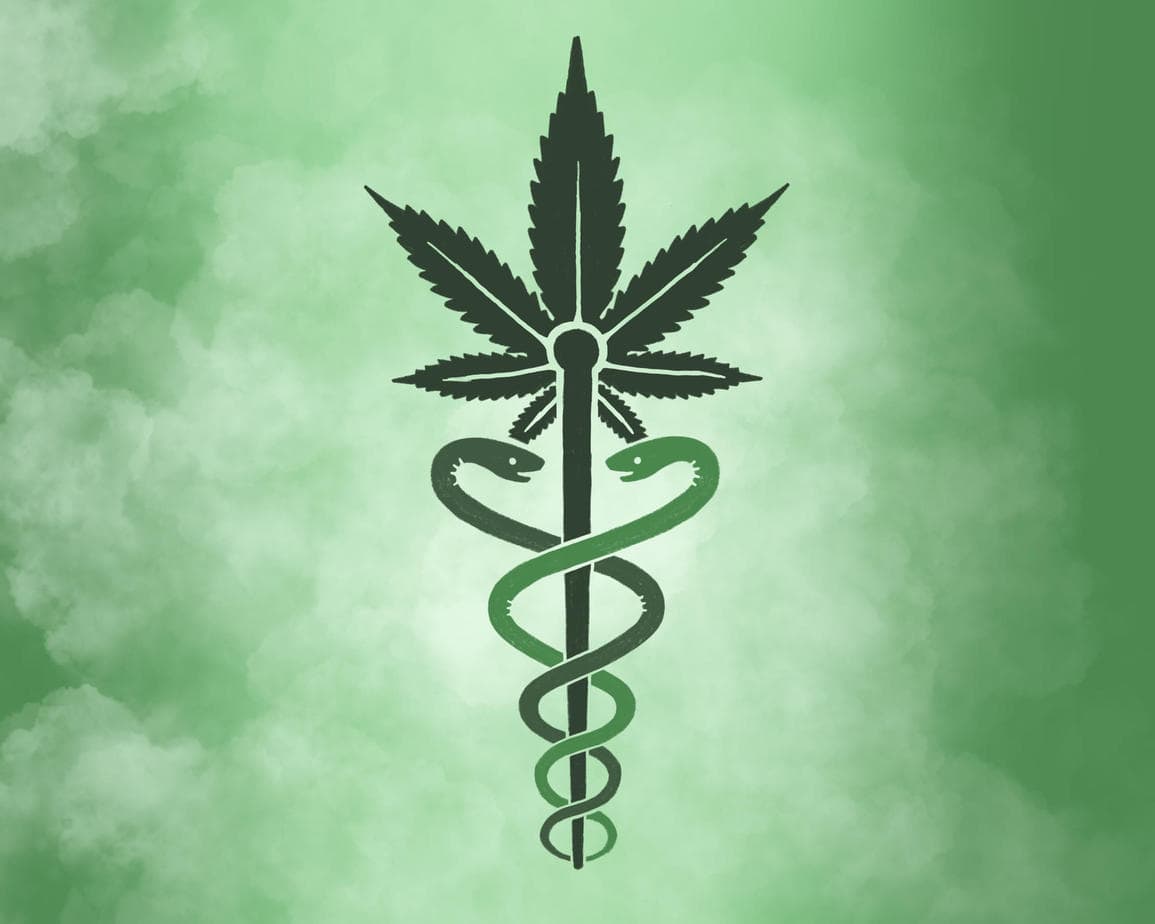Shedding Light on What Medical Marijuana Can Treat: an In-Depth Evaluation of Its Healing Characteristics
In current years, there has been an expanding interest in the therapeutic capacity of medical cannabis. While anecdotal evidence is plentiful, a comprehensive examination of the scientific information regarding the effectiveness of medical marijuana in treating these problems is warranted.
Chronic Discomfort Management
Chronic discomfort management continues to be a crucial facet of medical care, requiring an extensive technique for effective therapy. In the last few years, clinical cannabis has actually become a possible restorative option for people experiencing from chronic pain problems. The endocannabinoid system, which plays a crucial role in pain inflection, has been targeted by cannabis-based treatments to improve and relieve signs lifestyle for individuals.

Moreover, medical marijuana offers an appealing choice for clients that experience unbearable adverse effects from standard pain medicines. Its ability to attend to pain with a various mechanism makes it a beneficial addition to the collection of treatments offered for persistent pain administration.
Epilepsy Therapy Prospective
Clinical cannabis has revealed promising possibility in the treatment of epilepsy, offering an unique restorative technique for managing seizures in patients. Epilepsy is a neurological disorder identified by recurring seizures, impacting individuals of all ages. Conventional therapies for epilepsy consist of antiepileptic medicines, but these medicines might not work for all patients and can have considerable adverse effects.
Study on using medical cannabis for epilepsy has exposed motivating outcomes. Cannabidiol (CBD), a non-psychoactive substance located in marijuana, has actually been specifically highlighted for its anticonvulsant buildings. Studies have shown that CBD can reduce the frequency and seriousness of seizures in clients with treatment-resistant types of epilepsy, such as Dravet syndrome and Lennox-Gastaut syndrome.
Additionally, the FDA has authorized a CBD-based medicine, Epidiolex, for the treatment of seizures related to these serious forms of epilepsy. This turning point highlights the growing recognition of medical marijuana as a valuable healing alternative for handling epilepsy and supplies expect clients who have not responded well to conventional therapies.
Nausea Or Vomiting Alleviation Conveniences
The relief of queasiness with making use of cannabis has actually been progressively acknowledged for its therapeutic advantages in different medical conditions. Nausea or vomiting and throwing up prevail signs experienced by clients undergoing radiation treatment, those with food poisonings, and individuals with persistent pain conditions. Clinical cannabis, with its active substances such as THC and CBD, has shown assurance in supplying remedy for nausea or vomiting.

Additionally, medical marijuana provides an all-natural option for individuals that do not continue reading this respond well to conventional anti-nausea drugs or that experience severe adverse effects from these medications. Patients undertaking chemotherapy, particularly, have reported significant enhancements in their quality of life when making use of cannabis to take care of queasiness. As study around remains to grow, clinical cannabis is progressively being considered as a useful alternative for nausea or vomiting relief in numerous medical setups.
Anxiousness Reduction Impacts
Researches have actually demonstrated the capacity of marijuana in reducing stress and anxiety symptoms with its communication with the endocannabinoid system. The endocannabinoid system plays a vital role in controling feelings, including stress and anxiety, by keeping homeostasis in the body. Cannabinoids in marijuana, such as THC and CBD, communicate with the endocannabinoid receptors in the mind, especially the CB1 and CB2 receptors, to modulate anxiety-related actions.

Patients with conditions like generalized stress and anxiety problem (GAD), social anxiety disorder, and post-traumatic anxiety problem (PTSD) discover this might profit from the anxiolytic homes of marijuana (Medical Marijuana Dispensary near me). However, additional research is needed to establish optimal dosages, delivery methods, and long-term results on anxiety monitoring.
Possible for Swelling Control
With its recognized anti-inflammatory residential properties, marijuana has shown assurance in potentially regulating swelling within the body. Inflammation is the body's natural response to injury or infection, yet when it ends up being chronic, it can add to numerous illness such as arthritis, inflammatory bowel condition, and even cardiovascular disease. Study recommends that the cannabinoids discovered in marijuana, such as THC and CBD, can aid control the immune response and lower inflammation.
Studies have actually shown that marijuana can communicate with the endocannabinoid system, which plays an important role in managing inflammation. By targeting the cannabinoid receptors, marijuana compounds can regulate the immune reaction, bring about a reduction in swelling levels. This makes marijuana a prospective prospect for managing inflammatory problems where conventional therapies have failed.
Moreover, cannabis-derived products like CBD oil have obtained popularity for their anti-inflammatory buildings, with numerous people utilizing them as a natural remedy for conditions connected with inflammation. While even more study is required to completely comprehend the systems behind marijuana's anti-inflammatory results, current searchings for show encouraging results for the prospective use medical cannabis in managing swelling.
Conclusion
To conclude, clinical marijuana has shown appealing healing residential properties in managing chronic pain, dealing with epilepsy, alleviating queasiness, lowering anxiety, and controlling inflammation. Its prospective advantages in numerous clinical problems highlight the importance of further research study and expedition right into its medical usage. The proof recommends that medical marijuana might be a beneficial choice treatment option for clients seeking relief from a variety of signs and conditions.
In recent years, medical cannabis has emerged as a potential therapeutic option for people enduring from persistent discomfort problems.Clinical cannabis has shown encouraging possibility in the therapy of epilepsy, supplying an unique restorative method for taking care of seizures in people. As study in this location proceeds to grow, medical marijuana is increasingly being considered as a valuable alternative for nausea or vomiting alleviation in different medical setups.
In verdict, clinical cannabis has actually revealed appealing therapeutic homes in handling chronic discomfort, dealing with epilepsy, easing nausea, reducing anxiousness, and managing swelling. The proof suggests that clinical cannabis can be a useful alternative therapy choice for patients looking for relief from an array of conditions and symptoms.